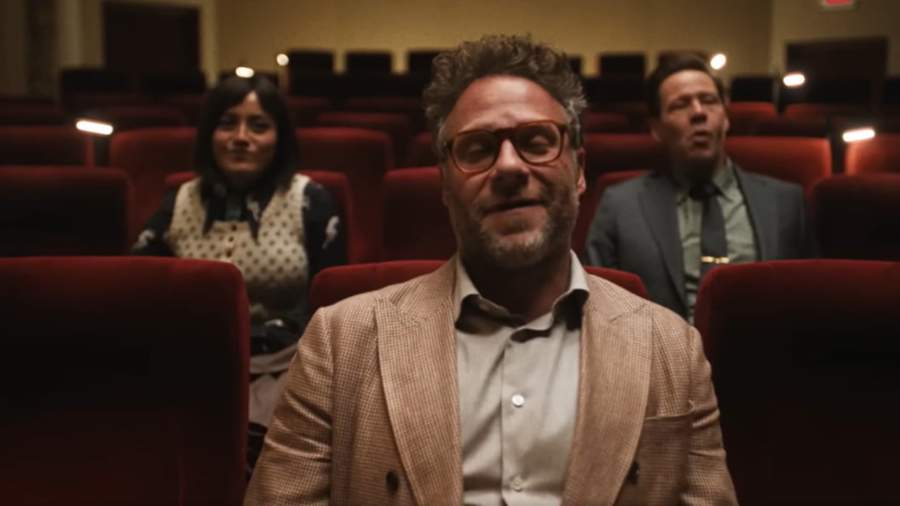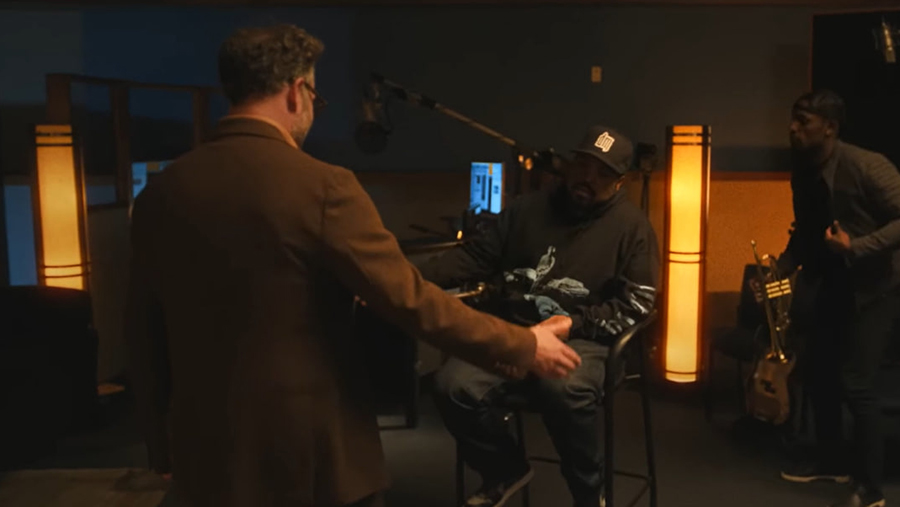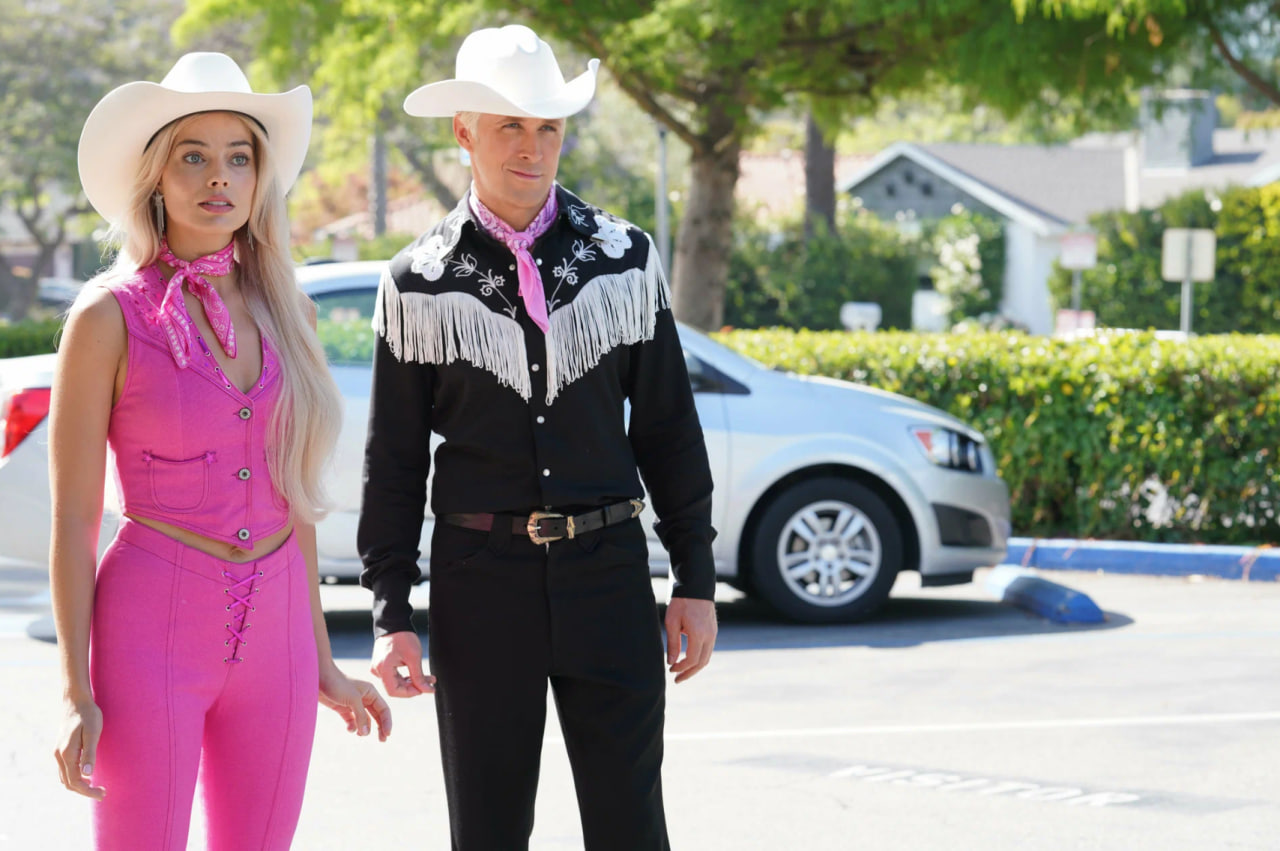Stop, it's not filmed: how the TV series "Film Studio" exposes Hollywood

"The best TV series of 2025 so far", "the main contender for the title of the best comedy of the year", "jokes one after another make you laugh — and none are fake", "one of Hollywood's toughest self—portraits in many years" - the main US film publishers are absolutely delighted with Seth Rogen's new series "Film Studio". On March 26, the first two episodes (with official Russian subtitles) were released on Apple TV+ — and it became clear that this is an absolute hit for those who love and know mass cinema. However, Izvestia did not like everything about this project. Read more in our review.
What is the Movie Studio series about
The second season of "Separation", which became no less an event than the first, did not have time to end, as Apple, slightly disappointing the audience with "Drugs", released a new serial superhit. Seth Rogen's "Film Studio" is a comedy about what remains on the other side of the screen, on the backstage, but at the same time a satire on capitalism and American society, as well as a mockery of cinephiles and connoisseurs of arthouse.
It didn't go well for everyone, but as a result, everyone is laughing too. Rogen does not reveal anything fundamentally new: "Film Studio" continues the tradition of "Sunset Boulevard", "American Night" and "The Gambler", and stylistically it most resembles the famous TV series "Entourage". The strength of the series lies in its topicality, the number of superstars in the frame, and the humor, which is witty rather than funny.
Like Entourage, Kinostudiya is a vertical series. This means that there is no single plot developing from episode to episode, but each episode is a complete short story. Moreover, if the "pilot" lasts 44 minutes, then the subsequent episodes are about 25 minutes each, so as not to get bored.

The plot core is the reformatting of the fictional Continental film studio. It all starts with the fact that the idealistic director is fired from there and her deputy, Matt (Seth Rogen), is put in her place. Matt is no longer young and, to be honest, completely incompetent in all respects, but he is in love with auteur cinema and dreams of doing it. But gendir (Bryan Cranston) has a requirement to make a lot of money, quickly and immediately, so you have to make films that Matt hates and despises.
So, in the first episode, he is assigned to launch an audience hit based on the Kool-Aid brand of soda (look on the Internet, their mascot is a walking red glass with lemonade). The logic is this: if "Barbie" has earned more than a billion, then it is possible. Seth Rogen immediately puts in some obscene jokes about the fact that men dream of having sex with Barbie, women with Ken, but hardly anyone imagined an intimate relationship with a glass. Matt immediately meets with Martin Scorsese (as himself) and agrees with him to make a creepy film about the mass suicides of sectarians in Johnstown for $ 250 million dollars and call it "Kool-Aid." And everything would be fine, but now we need to figure out how to tell the most important boss about this, because such a picture will have a limited audience, to put it mildly. And then Matt needs to get out of it, because one wrong step and his career, along with a lot of money, will fall into the abyss.

Despite the fact that it would be fun to follow the Kool-Aid project, the following episodes deprive us of this pleasure and place us in other projects. For example, in the second one, Matt finds himself on the set, where the director is trying to shoot a scene in one long take, but because of Matt, the shift can be disrupted because he makes too much noise, then demands to make changes to the script, then ... However, we will not deprive the viewer of pleasure. In the third episode, Matt will have to prove to his idol Ron Howard (also, of course, in the role of himself) that he made too long a movie and it needs to be greatly shortened.
Disadvantages of the series "Film Studio"
Seth Rogen's goals are immediately clear. Firstly, he accuses the cinema of greed, because absolutely all the characters are turned on money. The great Scorsese needs great money: one script costs $10 million dollars, which is about the budget of the most expensive Russian paintings. No matter how idealistic the characters we meet may be, they understand that there won't be a movie without huge sums, so they lie, bluff, fawn, and make any compromises. All this is sad and not very funny, as it seems that Rogen himself is not funny, because it was his character who he trusted to break other people's plans and destinies in the name of illusory success. Such people, he says, decide the fate of cinematography.
The second target is the cinema itself. Rogen wittily analyzes genre cliches, gradually moving on to the author's cliches, and the parody part of the "Film Studio" will be the most attractive for cinephiles. Paul Dano in the short role of a gangster, Howard, who can't stop and graphically brings the narrative to three hours, so that by the end no one understands (or wants to understand) what's going on in the frame.
In fact, the series is Rogen's reflection on the impasse in which cinema found itself, with a detailed analysis of the reasons that stopped the development of this art and turned it into commerce. Another thing is that Rogen himself fell into his own trap. The Hollywood he creates for us exists in a parallel world. During the first episodes, Trump and Biden are never mentioned, there is no sense of the era, modernity, there are no ordinary people, there is no personal life of the characters, here we even get to the heroine's mansion only because the producer needs to discuss a contract with her.
It's a hermetic, conventional space where there's nothing else but the movie business. And due to this, Rogen's social satire quickly runs out of steam, trampling on the spot: we have already understood everything, but Rogen does not go further, does not expand the space, does not deepen the problems. He remains in the mainstream of an entertainment show, and we understand that in the next episodes we will see a number of celebrities, several more stamp galleries, and the titles of the next episodes hint that there will be more jokes about war films, film awards, casting, and other purely professional elements of the film business. But the further you go, the more interest in the series will depend on how much the viewer loves and knows movies, who the sacred figures are for him, and how much he trembles at the names of Woody Allen and Roman Polanski.
Meanwhile, the problems that Rogen is talking about concern not only Hollywood and not only the United States. When Russian schoolchildren are offered Cheburashka or The Lackey as recommended films, leaving aside the recognized masterpieces of Russian cinema, this is part of the same process as the one about which the series "Film Studio" was filmed. And the conversation about this should be broader, more serious and thoughtful, although it would be great if it was led by a person with the same good taste and sense of humor as Seth Rogen.
Переведено сервисом «Яндекс Переводчик»


